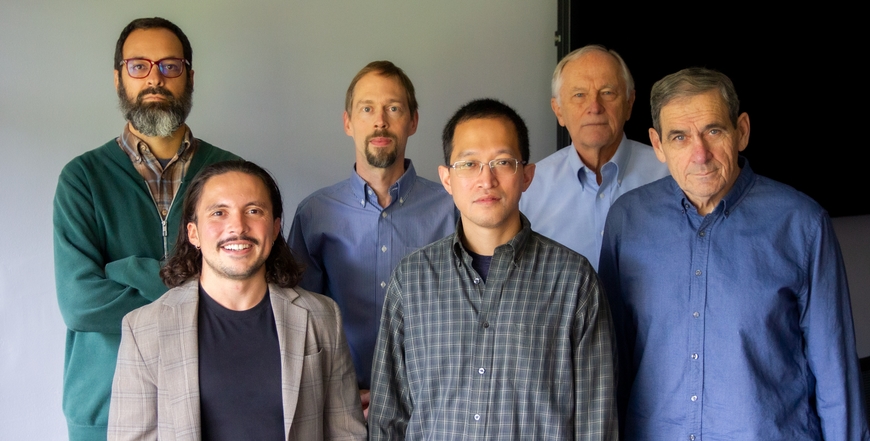Personality, Individual Differences, and Behavior Genetics (PIB)

The Personality, Individual Differences, and Behavior Genetics (PIB) graduate program aims to train behavioral scientists interested in understanding the nature, origins, and consequences of individual differences in behavior. Graduates of the program typically take positions in academia or at applied research institutes. The PIB program reflects the long tradition of personality, individual differences, and behavioral genetic research at the University.
A wide range of individual differences constructs is considered within the program, including:
- cognitive abilities
- temperament
- identity
- motives
- character
- expressive and social behavior
- psychological interests
- social attitudes
- academic achievement
- mental disorders
The individual differences component of the program emphasizes broad training in the methods and findings of individual differences psychology.
The personality component of the program emphasizes methods of personality measurement and assessment, the nature and origins of individual differences in personality, and the impact of personality on a broad array of important real-life outcomes. These include social functioning, work performance, and psychological illness.
The behavioral genetic component of the program emphasizes the use of behavioral genetic methodology to characterize the interplay of genetic and environmental factors in the development of individual differences.
Throughout, the importance of individual differences in both applied and basic research settings is stressed. Individual difference methodology and findings have broad implications for a wide range of researchers, including:
- cognitive psychologists
- neuroscientists
- gerontologists
- clinical psychologists
- evolutionary psychologists
- counseling psychologists
- social psychologists
- educational psychologists
- industrial/organizational psychologists
- public policy, forensics, and animal researchers
Curriculum
As a PIB student, you will complete a core set of courses and seminars that reflect the shared content and methodology of the field, including courses in quantitative methods, research methodology, and psychological assessment. These will provide the foundation you will need to undertake psychological research. In addition, you will select from a list of courses related to personality, individual differences, and behavioral genetics. You will also design an individualized course of instruction in consultation with your advisor—for example, involving courses that cover assessment, nature, and real-world consequences of individual differences in personality, cognitive ability, and other types of individual differences, or training in molecular and quantitative genetic approaches. For specific curriculum requirements to the PIB program, please visit the Graduate Education Catalog: Psychology.
Research
You will be required to actively engage in research throughout your graduate career. Student research is undertaken in collaboration with the graduate advisor and should increasingly reflect your interests and long-term career goals as you progress through the program. In your first year, you must complete a research project that typically results in a presentation at a professional conference and a submission of a manuscript for publication. In your second year, you will undertake a second research project that typically serves as a masters' thesis. By your third year, you will begin to develop a program of research that will serve as the basis for your doctoral dissertation. Throughout their time in the program, students are encouraged to collaborate with students and faculty in related areas including Clinical, Social, Industrial/Organizational, Counseling, and Quantitative Psychology.
Funding Opportunities
The Department of Psychology offers a variety of funding opportunities to graduate students—including assistantships, fellowships, and a training program supported by a T32 grant from the National Institutes of Health.
For more information, please see the Funding Opportunities webpage or our page on the Training Grant.
Inclusion and Diversity
The Personality, Individual Differences, and Behavior Genetics program strongly supports inclusion and diversity and encourages applications from individuals underrepresented in psychology, including individuals from underrepresented racial and ethnic groups, those with disabilities, and those from disadvantaged backgrounds. To learn more please see the department's page on diversity and inclusion.
Core Faculty
Thomas Brothen, Morse-Alumni Distinguished Professor of Psychology
Juan Del Toro, Assistant Professor
Colin DeYoung, Area Director and Associate Professor
James Lee, Associate Professor
Matthew McGue, Regents Professor
Moin Syed, Associate Professor
Affiliated Advising Faculty
Christopher Federico, Professor of Psychology and Political Science
William G. Iacono, Regents Professor and Distinguished McKnight University Professor
Bob Krueger, Hathaway Distinguished Professor and Distinguished McKnight University Professor
Nathan Kuncel, Professor
Richard M. Lee, Distinguished McKnight University Professor
Angus MacDonald, Distinguished McKnight University Professor
Deniz Ones, Distinguished McKnight University Professor
Whitney Ringwald, Starke Hathaway Endowed Assistant Professor in Clinical Psychology
Paul Sackett, Richard Fink Distinguished Professor
Jeffry A. Simpson, Distinguished University Teaching Professor
Mark Snyder, McKnight Presidential Chair in Psychology
Iris Vilares, Assistant Professor
Scott Vrieze, Associate Professor and McKnight Land-Grant Professor
Niels Waller, Professor
Emeritus Professors
Thomas J. Bouchard
James Butcher
Jo-Ida Hansen
Gloria Leon
Auke Tellegen